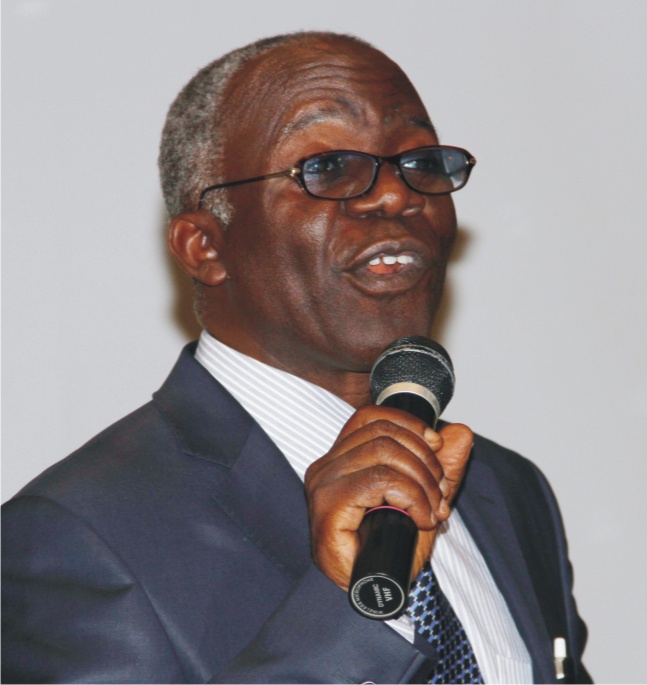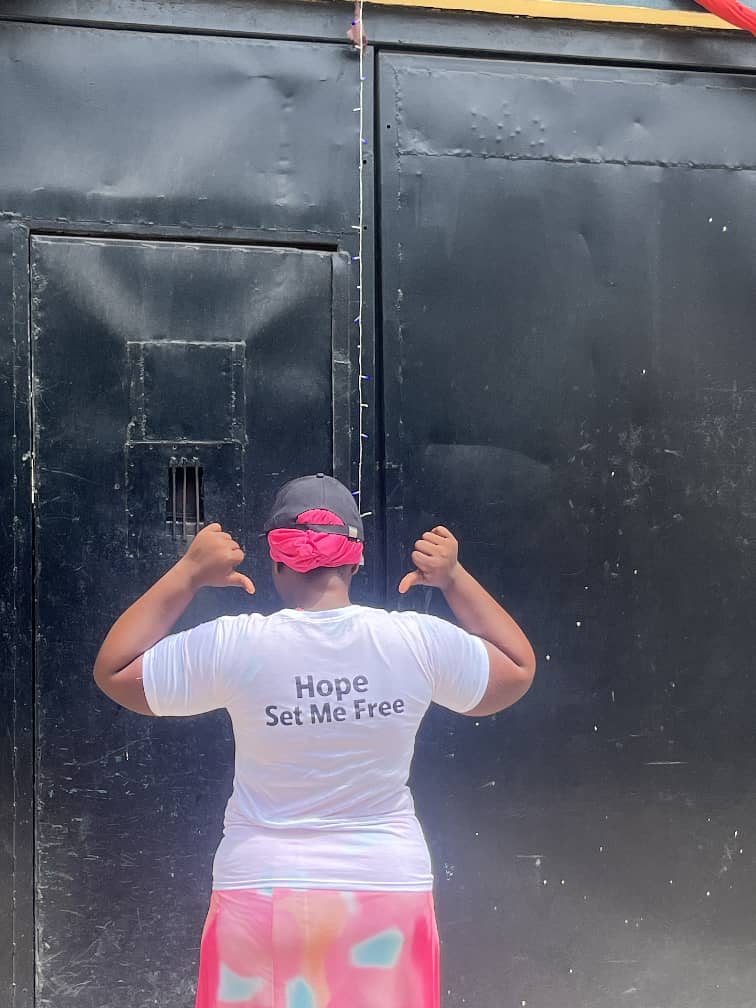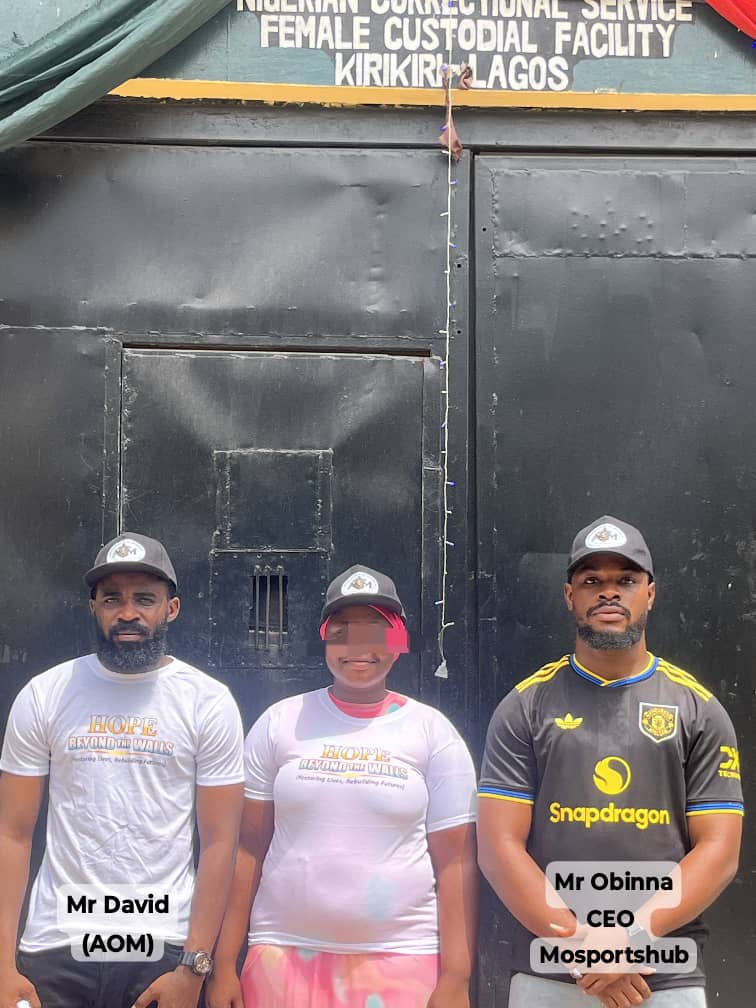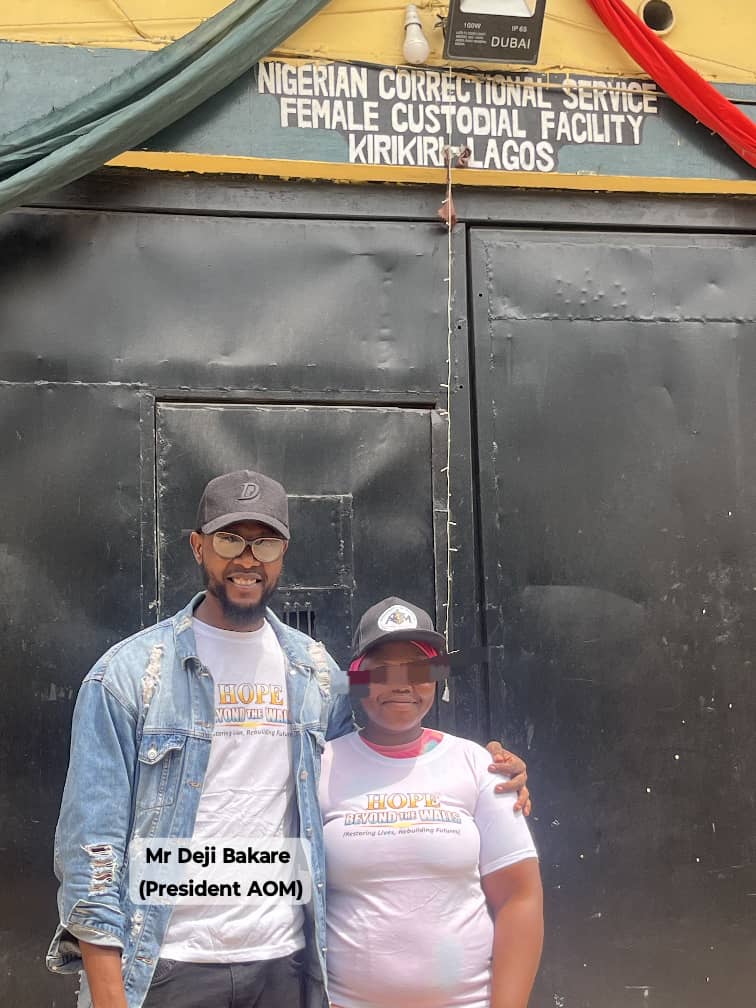society
Falana Faults Agbakoba on EFCC’s Legal Status

Falana Faults Agbakoba on EFCC’s Legal Status
Foremost rights activist and lawyer, Mr. Femi Falana (SAN) has written to the President of the Senate, Senator Godswill Akpabio and Speaker of the House of Representatives, Rt. Hon. Tajudeen Abbas in opposition to the view canvassed by ex-President of the Nigerian Bar Association (NBA), Dr. Olisa Agbakoba (SAN) on the legal status of the Economic and Financial Crimes Commission (EFCC).
In a letter dated 17th October, 2024, Falana said, “Our attention has been drawn to the separate letters addressed to the Senate and House of Representatives, dated October 14, 2024, entitled: “Re: Urgent Legislative Attention on Constitutional Reforms Relating to Law Enforcement Agencies and Anti-corruption Efforts”, (in which) Dr. Olisa Agbakoba contended that the power under which EFCC was established was beyond the powers of the National Assembly.
“Convinced that the Economic and Financial Crimes Commission (EFCC) is “an unlawful organisation” because it was “unconstitutionally established”, Agbakoba stated he was delighted to note that many states had finally taken it upon themselves to challenge the constitutionality of the EFCC.”
Falana noted that Agbakoba did not cite any case to back up his claim that the Supreme Court has vilified the EFCC with respect to its activities and existence.
“Even though, he did not refer to any particular case, Dr. Agbakoba said that the Supreme Court has knocked the EFCC on many occasions. On the contrary, the Supreme Court has consistently supported the efforts of the ICPC and EFCC in fighting the miasma of monumental corruption in the country,” he said.
The legal luminary said Agbakoba’s position is premised on the fact that the establishment of EFCC violated the basic tenets of federalism.
He stated further that, “It is pertinent to recall that in the celebrated case of the Attorney-General of Ondo State v Attorney-General of the Federation & Ors (2022) 27 WRN 1, the Plaintiff (Ondo State Government) had challenged the constitutional validity of the establishment of the Independent Corrupt Practices and Other Offences Commission Act, 2000. The Attorney-General of Ondo State was the Plaintiff while the Attorney-General of the Federation and the Attorneys-General of 35 States were the Defendants.
“In that case, the late Professor Ben Nwabueze and Dr. Agbakoba were the amici curiae while I was privileged to have represented one of the Defendants. It ison record that several Defendants and the amici curiae had argued profusely that the ICPC Act was unconstitutional in every material particular.Both amici curiae urged the Court to annul the ICPC Act.
“Upon a critical analysis of the submissions of all counsel, including the amici curiae, the apex court upheld the constitutional validity of the ICPC Act. In the leading judgment of the Court delivered by Uwais CJN (as he then was) it was held that the National Assembly has the sole power for the establishment and regulation of authorities for the federation or any part thereof so as to promote and enforce the observance of the nation’s responsibility to abolish all corrupt practices and abuse of power which fall under the Fundamental Objectives and Directive Principles of State Policy in section 15(5) of the 1999 CFRN.
“If this is a breach of the principles of federalism, then, I am afraid, it is the Constitution that makes provisions that have facilitated breach of the principles.As far as the aberration is supported by the provisions of the Constitution, I think it cannot rightly be argued that an illegality has occurred by the failure of the Constitution to adhere to the cardinal principles which are at best ideals to follow or guidance for an ideal situation…the provisions of Section 13 thereof apply to all organs of government and all authorities and persons exercising legislative, executive or judicial powers’. The provisions do not distinguish between Federal, State or Local Governments.Again the provisions of Section 14 subsection (4) specifically apply to the government or council, and the conduct of the affairsof the government or council or such agencies.” See Olafisoye v. FRN (2004) 4 NWLR (Pt. 864) 580.
“Even though we cannot comment on the merit of the case of Attorney-pending at the Supreme Court of Nigeria, it is pertinent to refer the members of
the National Assembly to the case of Attorney-General of Abia State v Attorney-General of Federation (2024) LPELR-62576 (SC).
“In that case, the Plaintiff had argued that the power of the EFCC to prosecute financial crimes did not extend to the management of the accounts of Abia State Government. The plaintiff then sought “declarations, including a perpetual injunction, to prevent the EFCC from taking any such actions, including the freezing of its bank accounts.
“The defendant (AGF) filed a preliminary objection to the effect that it had been incorrectly sued, because the EFCC was an independent body outside its lawful management and control.
In upholding the preliminary objection of the Defendants, the Supreme Court held that the facts of the case did not disclose any dispute between the plaintiff and the defendants within the meaning of section 232(1) of the Constitution and that there was no complaint against the first defendant (AGF) as representing the Federal Government as all the complaints were against the EFCC.
Consequently,the Supreme Court struck out the case but held that the plaintiff is at liberty to sue the EFCC, but not in the Supreme Court as the EFCC is neither a State nor the Federation. We wish to state without any fear of contradiction, that no State Government has followed the advice of the apex court by filing a suit to challenge the constitutionality of the EFCC Act in a court of competent jurisdiction.
“However, a number of former governors have continued to question the locus standi of the EFCC to arrest, investigate and prosecute them for the criminal diversion of public funds belonging to state governments. For instance, in the case of Nyame vs Federal Republic of Nigeria (2010) 3 SC (Pt.1) 78, the Supreme Court held inter alia: ‘Sections 6(m) and 46 of the Economic and Financial Crimes Commission (Establishment) Act vest in EFCC the function and duty of investigating and prosecuting persons reasonably a person to rush to court to place a clog or shield against criminal investigation and prosecution’.”
Falana further contended that
“in view of the duty imposed on the State by Section 15(5) of the Constitution to ‘abolish all corrupt practices and abuse of power’, the Supreme Court in the case of Shema vs. Federal Republic of Nigeria (2018) 9 NWLR (PT.
1624)337@ 398 held that ‘in the co-operative federalism practiced in Nigeria,the EFCC is a common agency empowered to investigate and prosecute offenders for both the Federal and state economic and financial crimes and as such it qualifies as ‘any other authority or person’ empowered by section 211 (1) (b) of the Constitution to institute or initiate criminal proceedings. EFCC is the coordinating agency for the enforcement of the provisions of any other law or regulation on economic and financial crimes, including the Criminal Code and Penal Code. The Commission has powers under section 13 (2) of the EFCC Act to prosecute offences so long as they are financial crimes’.”
Falana berated some state governments for seeking to frustrate the anti-graft initiatives of the Federal Government instead of supporting the agencies to thrive.
“Instead of ensuring that the EFCC, ICPC and Code of Conduct Bureau serve as ‘common agencies’ of the people of Nigeria in combating the miasma of monumental corruption in the country, some state governments have a penchant for terminating grave economic and financial crimes by filing nolle prosequi applications. Others usually rush to either State High Court or Federal High Court to procure frivolous court injunctions to frustrate the prosecution of serving public officers and thereby making a mockery of public accountability and transparency in government,” he said.
The rights activist urged the National Assembly to seize the opportunity provided by the ongoing Constitution Amendment to end the questions about the legality of EFCC and Independent Corrupt Practices and Other Offences Commission (ICPC) by entrenching both in the Constitution.
“In the light of the foregoing, we urge the members of the National Assembly to take advantage of the ongoing constitutional review to end the diversionary debate about the validity of the EFCC Act and ICPC Act by entrenching both Economic and Financial Crimes Commission and the Independent Corrupt Practices and Other Offences Commission in the Constitution. In other words, if both commissions are constitutionalised, they will be protected and strengthened to fight the menace of corruption and money laundering,” Falana said.
society
Viral “Chat With God” Claim Targeting Kenyan Prophet David Owuor Proven False

Viral “Chat With God” Claim Targeting Kenyan Prophet David Owuor Proven False
By George Omagbemi Sylvester, SaharaWeeklyNG
“Viral screenshot sparks national controversy as the Ministry of Repentance and Holiness dismisses fabricated “divine” WhatsApp exchange, raising urgent questions about faith, digital misinformation, and religious accountability in Kenya.”
A sensational social media claim that Kenyan evangelist Prophet Dr. David Owuor displayed a WhatsApp conversation between himself and God has been definitively debunked as misinformation, sparking national debate over digital misinformation, religious authority and faith-based claims in Kenya.
On February 18–19, 2026, an image purporting to show a WhatsApp exchange between a deity and Prophet Owuor circulated widely on Twitter, Facebook, WhatsApp groups and TikTok. The screenshot, allegedly shared during one of his sermons, was interpreted by many as illustrating unprecedented direct communication with the divine delivered through a mainstream messaging platform; a claim that, if true, would have broken new ground in how religious revelation is understood in contemporary society.
However, this narrative quickly unraveled. Owuor’s Ministry of Repentance and Holiness issued an unequivocal public statement calling the image “fabricated, baseless and malicious,” emphasizing that he has never communicated with God through WhatsApp and has not displayed any such digital conversation to congregants. The ministry urged the public and believers to disregard and stop sharing the image.
Independent analysis of the screenshot further undermined its credibility: timestamps in the image were internally inconsistent and the so-called exchange contained chronological impossibilities; clear indicators of digital fabrication rather than an authentic conversation.
This hoax coincides with rising scrutiny of Owuor’s ministry. Earlier in February 2026, national broadcaster TV47 aired an investigative report titled “Divine or Deceptive”, which examined alleged “miracle healing” claims associated with Owuor’s crusades, including assertions of curing HIV and other chronic illnesses. Portions of that investigation suggested some medical documentation linked to followers’ health outcomes were fraudulent or misleading, intensifying debate over the intersection of faith and public health.
Credible faith leaders have weighed in on the broader context. Elias Otieno, chairperson of the National Council of Churches of Kenya (NCCK), recently urged that “no religious leader should replace God or undermine medicine,” affirming a widely accepted Christian understanding that divine healing does not supplant established medical practice. He warned against unverified miracle claims that may endanger lives if believers forego medical treatment.
Renowned communications scholar Professor Pippa Norris has noted that in digital societies, “religious authority is increasingly contested in the public sphere,” and misinformation (intentional or accidental) can quickly erode trust in both religious and secular institutions. Such dynamics underscore the importance of rigorous fact-checking and responsible communication, especially when claims intersect profoundly with personal belief and public well-being.
In sum, the viral WhatsApp chat narrative was not a revelation from the divine but a striking example of how misinformation can exploit reverence for religious figures. Owuor’s swift repudiation of the false claim and broader commentary from established church bodies, underline the ongoing challenge of balancing deeply personal faith experiences with the evidence-based scrutiny necessary in a digitally connected world.
society
HOPE BEYOND THE WALLS 2026: ASSOCIATION OF MODELS SUCCESSFULLY SECURES RELEASE OF AN INMATE, CALLS FOR CONTINUED SUPPORT

HOPE BEYOND THE WALLS 2026: ASSOCIATION OF MODELS SUCCESSFULLY SECURES RELEASE OF AN INMATE, CALLS FOR CONTINUED SUPPORT
The Association of Models (AOMNGO) proudly announces the successful completion of the first edition of Hope Beyond the Walls 2026, a humanitarian initiative dedicated to restoring hope and freedom to deserving inmates.
Despite enormous challenges, financial pressure, emotional strain, and operational stress, the organization remained committed to its mission. Through perseverance, faith, and collective support, one inmate has successfully regained freedom a powerful reminder that hope is stronger than circumstance.
This milestone did not come easily.
Behind the scenes were weeks of coordination, advocacy, fundraising, documentation, and intense engagement. There were moments of uncertainty, but the determination to give someone a second chance kept the vision alive.
Today, the Association of Models gives heartfelt appreciation to all partners and sponsors, both locally and internationally, who stood with us mentally, financially, morally, and physically.
Special Recognition and Appreciation To:
Correctional Service Zonal Headquarters Zone A Ikoyi
Esan Dele
Ololade Bakare
Ify
Kweme
Taiwo & Kehinde Solagbade
Segun
Mr David Olayiwola
Mr David Alabi
PPF Zion International
OlasGlam International
Razor
Mr Obinna
Mr Dele Bakare (VOB International)
Tawio Bakare
Kehinde Bakare
Hannah Bakare
Mrs Doyin Adeyemi
Shade Daniel
Mr Seyi United States
Toxan Global Enterprises Prison
Adeleke Otejo
Favour
Yetty Mama
Loko Tobi Jeannette
MOSES OLUWATOSIN OKIKIADE
Moses Okikiade
(Provenience Enterprise)
We also acknowledge the numerous businesses and private supporters whose names may not be individually mentioned but whose contributions were instrumental in achieving this success.
Your generosity made freedom possible.
A CALL TO ACTION
Hope Beyond the Walls is not a one-time event. It is a movement.
There are still many deserving inmates waiting for a second chance individuals who simply need financial assistance, legal support, and advocacy to reunite with their families and rebuild their lives.
The Association of Models is therefore calling on:
Corporate organizations
Local and international sponsors
Philanthropists
Faith-based organizations
Community leaders
Individuals with a heart for impact
to partner with us.
Our vision is clear:
To secure the release of inmates regularly monthly, quarterly, or during special intervention periods through structured support and transparent collaboration.
HOW TO SUPPORT
Interested partners and supporters can reach out via
Social Media: Official Handles Hope In Motion
Donations and sponsorship inquiries are welcome.
Together, we can turn difficult stories into testimonies of restoration.
ABOUT AOMNGO
The Association of Models (AOMNGO) is a humanitarian driven organization committed to advocacy, empowerment, and social impact. Through projects like Hope Beyond the Walls, the organization works tirelessly to restore dignity and create opportunities for individuals seeking a second chance.
“When we come together, walls fall and hope rises.”
For media interviews, partnerships, and sponsorship discussions, please contact the Association of Models directly.
society
SENATOR ADEOLA YAYI REGISTERS 4000 JAMB CANDIDATES

SENATOR ADEOLA YAYI REGISTERS 4000 JAMB CANDIDATES
In continuation of his educational support initiatives and following established tradition, Senator Solomon Adeola (APC,Ogun West) has successfully paid for and enrolled 4000 indigent students for the 2026 Joint Admission Matriculation Board(JAMB) examination.
According to a release e-signed and made available to members of the League of Yewa-Awori Media Practitioners (LOYAMP) by High Chief Kayode Odunaro, Media Adviser to Senator Adeola and shared with (your mediu), the programme financed by the senator under the “SEN YAYI FREE JAMB 2026” ended on Saturday , February 21, 2026, with a total of 4000 candidates successfully enrolled with their PINs provided.
Commenting on the success of the programme, Senator Adeola said the programme is another leg of his personal educational empowerment for indigent but brilliant citizens preparatory to his scholarship and bursary facilitation for tertiary education institutions’ students.
“As far as I can help it, none of our children will miss educational opportunities arising out of adverse economic predicament of their parents or guardians”, he stated.
Successful candidates cut across all the three senatorial districts of Ogun State with 2183 coming from Ogun West, 1358 coming from Ogun Central and 418 from Ogun East.
Some of the candidates that applied and are yet to get their PINs due wrong information supplied in their profiles and being underage as discovered by JAMB and other reasons are being further assisted to see the possibility of getting their PINs.
The Free JAMB programme of the Senator that has been running for years is well received by appreciative beneficiaries and their parents.
Alhaji Suara Adeyemi from Ipokia Local Government whose daughter successfully got her PIN in the programme said the Senator’s gesture was a welcome financial relief for his family at this period after payment of numerous school fees of other siblings of the beneficiary seeking admission to higher institution.
Also posting on the social media handle of the Senator, a beneficiary Mr. Henry Olaitan, from Odeda LGA said that he would have missed doing the entry examination as his guardian cannot afford the fees for himself and two of his children.
-

 celebrity radar - gossips6 months ago
celebrity radar - gossips6 months agoWhy Babangida’s Hilltop Home Became Nigeria’s Political “Mecca”
-

 society6 months ago
society6 months agoPower is a Loan, Not a Possession: The Sacred Duty of Planting People
-

 society5 months ago
society5 months agoReligion: Africa’s Oldest Weapon of Enslavement and the Forgotten Truth
-

 news6 months ago
news6 months agoTHE APPOINTMENT OF WASIU AYINDE BY THE FEDERAL GOVERNMENT AS AN AMBASSADOR SOUNDS EMBARRASSING












